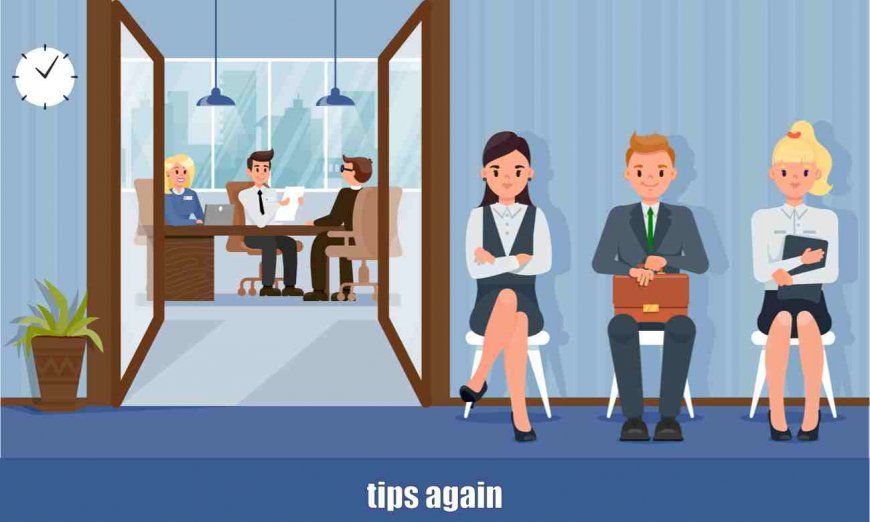job interview questions and answers
When you reach this point in a job interview where the interviewer is finished with their inquiries and opens up the floor you would rather not be surprised It's

When you reach this point in a job interview where the interviewer is finished with their inquiries and opens up the floor you would rather not be surprised It's important to have a plan for how you'll respond, and a rundown of questions well-defined for that opportunity.
In any case, what sorts of questions would it be a good idea for you to actually inquire? And are there certain ones to avoid? I went to two job interview experts for advice: Art Markman, a professor at the College of Texas at Austin and author of Bring Your Brain to Work, and John Remain, a UK-based vacation planner and creator of How to Find a New Line of work You Love. Here are their proposals for how to move toward this piece of the meeting and test questions they've seen work practically speaking.
Step-by-step instructions to Move toward This Piece of the Meeting
Focus on two goals.
You could consider this part of the meeting your opportunity to evaluate the association and whether you truly need to work there, and that is substantial One of your goals is to utilize these questions to assist you with determining assuming that this opportunity is ideal for you, says Markman.
However, the interview isn't finished at this point, and you actually want to demonstrate that you are the most qualified person, Lees. Thus, your other goal is to continue to demonstrate you're a fit for the particular opportunity. Lees proposes saying something like, "I really do have a couple of questions but before I ask, can I say one thing?" That will offer you a chance to commute home and any vital messages about your suitability for the job. In fact, before the interview, you should "decide in advance on two or three messages that you want to get across," says Lees, and on the off chance that you haven't had the option to convey those points in response to the questions you've been asked up to this point, you should do so presently. Then, you can continue on toward your questions.
Personalize your questions.
How you phrase your questions is important. Rather than using nonexclusive language, you want to ask the questions on the off chance that they pertain specifically to you. For example, instead of "What does a typical day seem to be?" you want to ask "What might a typical day for me in this job seem to be? That will allow the hiring manager to begin seeing you on the job. According to Lees, this is a "great psychological stunt" because "as soon as they visualize you doing the job, it's hard to relinquish that image."
Work off of your conversation.
You also want to get on what's happened in the interview up until this point. Ask questions that form from what you and the interviewer have examined. You should circle back to a task they mentioned you'd be working on, or a responsibility that you didn't find in the job description. The key is to cause this piece of the meeting to feel like a continuation of the discussion.
Sample Questions to Ask at the Finish of a Job Interview
Here are categories of questions you'll want to consider in an organized rundown, along with samples of each that you can personalize.
Questions about the particular job
What are your expectations for me in this job?
What's the main thing I should accomplish in the initial 90 days?
What's the performance survey process like here? How often could I be formally explored?
What measurements or goals will my performance be evaluated against?
What are the most immediate activities that I could take on?
How long before I will be… [meeting with clients, having responsibility for my own accounts, interacting with other departments, etc.]?
Questions about the team
What types of abilities is the team missing that you're looking to load up with a new recruit?
What are the greatest challenges that I could face in this position?
Do you expect my main responsibilities in this position to change in the following six months to a year?
Can you inform me about the team I'll work with?
Who will I work with most intently? What other departments or units will I interact with?
Can you educate me regarding my immediate reports? What are their assets and the team's greatest challenges?
Questions for your potential chief
In the event that the interviewer is your chief, you want to ask questions along these lines as well.
How long have you been at the company?
How long have you been a manager?
What's your favorite part of working here?
Questions about the company
One important note here: Don't ask for things that you can easily find with a speedy Google search (more on this in the "Questions to Avoid" section).
What are the ongoing goals that the company is focused on, and how does this team work to support hitting those goals?
What gets you generally amped up for the company's future?
How might you depict the company's values?
How has the company changed throughout recent years?
What are the company's plans for development and improvement?
Questions about the way of life
Dregs cautions that you ought to think about replies to inquiries regarding the organization's culture while considering other factors. It's profoundly improbable that the interviewer is going to emerge and let you know that the way of life is unwelcoming, or even toxic. That's the reason questions like #22 underneath can be useful. They get at company culture without unequivocally asking about it and can "assist you with uncovering any unforeseen components about your potential new workplace," Markman says.
How do you typically onboard employees?
If the position will be remote, ask specifically about how remote employees are integrated into the company culture, Markman advises.
What do new employees typically find surprising after they start?
Is there anything that I should read before starting that would help me have a shared understanding with my colleagues?
Asking this question not only signals your interest in the position but also shows that you’re eager to have “shared cultural references with the people you’ll be working with,” Markman says.
What’s your favorite office tradition?
What do you and the team usually do for lunch?
Do you ever do joint events with other departments or teams?
What’s different about working here than anywhere else you’ve worked?
How has the company changed since you joined?




















































































